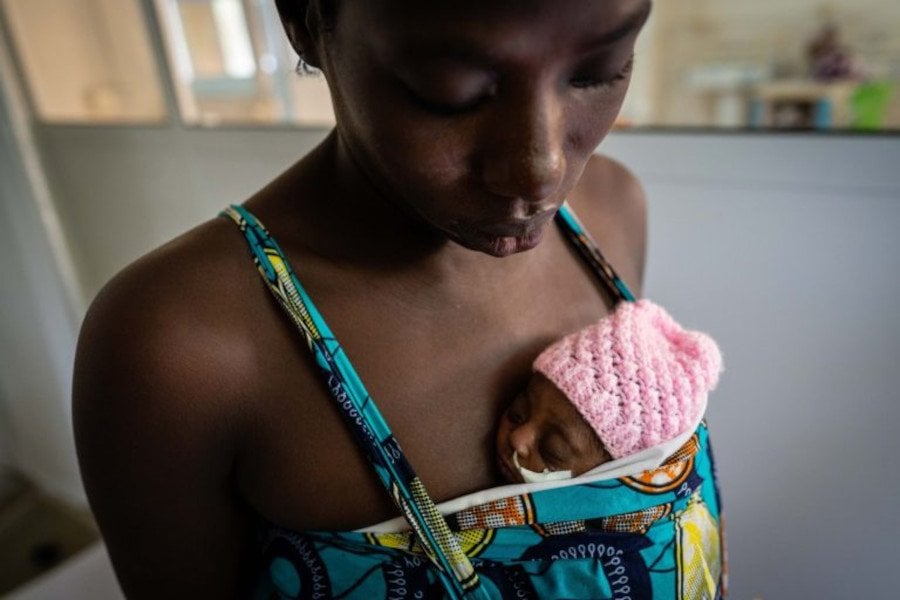
Complications of preterm delivery are the leading worldwide cause of under-five child mortality, with the highest burden during the first 24 hours after birth. Kangaroo Mother Care (KMC) is an evidence-based family centered intervention recommended as standard care for stable newborns <2kg, with proven mortality and clinical benefits, but with evidence gaps for early use with unstable neonates.
Researchers from the Medical Research Council Unit The Gambia at London School of Hygiene and Tropical Medicine conducted a non-blinded pragmatic randomised clinical trial at the Edward Francis Small Teaching Hospital neonatal unit from May 2018 to April 2020, recruiting 279 unwell neonates. The eKMC trial aimed to investigate the mortality and clinical effects of early KMC within 24 hours of hospital admission, compared to standard care in mild-moderately unstable neonates <2000g.
The eligibility criteria for recruitment into the study included weight <2000g and age 1–24 hours, with exclusion if stable or severely unstable. Neonates were randomly assigned to receive standard care, including KMC once stable at more than 24 hours after admission (control), versus KMC initiated less than 24 hours after admission (intervention). Randomisation was stratified by weight, with twins in the same arm.
The primary outcome was all-cause mortality at 28 postnatal days, assessed by intention to treat analysis. Secondary outcomes included: time to death; hypothermia and stability at 24 hours; breastfeeding at discharge; infections; weight gain at 28 days; and admission duration.
Study results published in Science Direct showed that early KMC was not associated with reduced mortality within 28 days. However, the mortality rate for neonates <2000g halved during the trial, compared to the pre-trial period. This was achieved mainly through the implementation of recommended small and sick newborn care including KMC, bubble CPAP & pulse oximetry monitoring. This halving of inpatient case-fatality rates contributed to reduced power to detect a difference in the primary outcome.
There was no evidence of between-arm differences for secondary outcomes or serious adverse events. However, one-third of intervention neonates reverted to standard care for clinical reasons. Achieving prolonged KMC duration was challenging, with barriers including the absence of willing KMC providers, provision to twin pairs, and the need for a respectful neonatal unit environment.
Dr. Helen Brotherton, Principal Investigator of the study said “Improving the survival of small and sick newborns is an absolute priority for child health services at national and global level. With the eKMC trial ,we showed that substantial gains are possible with recommended small and sick newborn interventions, and we also gained important insights to KMC delivery to sick newborns, which is challenging for mothers, families and health workers. This research was only possible due to close collaboration with EFSTH, and the Gambian Government Ministry of Health, and I hope to continue this partnership in the future.”
The eKMC trial gives insights into the safety, feasibility, and practicalities of providing early KMC to unstable newborns in a pragmatic, low-resource setting and will add to the literature for future investigation of this important newborn intervention.
Our postgraduate taught courses provide health practitioners, clinicians, policy-makers, scientists and recent graduates with a world-class qualification in public and global health.
If you are coming to LSHTM to study a distance learning programme (PG Cert, PG Dip, MSc or individual modules) starting in 2024, you may be eligible for a 5% discount on your tuition fees.
These fee reduction schemes are available for a limited time only.
